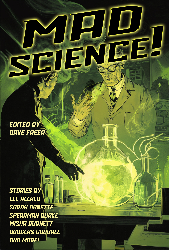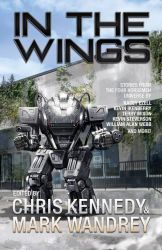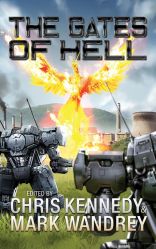November 22, 2011
C - The Money and Soul of Possibility Control
As far as I can tell from the stats, nobody's reading this, but still, the compulsion to review will not be stopped.
I'm not sure why I downloaded C when it was first running. I never even got around to watching it, although partly that was because my system at the time was choking on the fast-moving details of the opening credits. But it was there, soaking up space on my hard drive. I had just updated CCCP because another series I downloaded was only available in 10-bit, which only looks better than 8 bit because it looks crappy on an 8 bit codec. (I'm just waiting for the dicksizing to continue: "My new codec goes to ELEVEN!") But the codecs were improved enough that it would play better.
The opening wasn't promising either. "Oh god, not another arena combat Anime." only with an Economic theme. While this WAS a persistent part of the structure of the show, it slipped out of the main focus.
Our Hero, Kimimaro Yoga, is a young boy in college studying economics, living on his own, and all he wants out of life is the stability of a government job. He's broke, subsisting on the cheapest ramen in the cafeteria. And when he gets drafted into the digital/financial world, suddenly he has a small fortune in the bank.
The set-up is this. People are selected to participate in "The Financial District" and must fight "Deal" at least once a week. But of course, one's financial power comes at a cost. Once enrolled, you have mortgaged your future. Go bankrupt in one of these Deals and your future in the real world is gone, which frequently leads to suicide.
There's the rub, the happenings in the alternate world affect the real world, sometimes disastrously. After being forced to fight his economics professor, our hero is shocked to discover that the man's children have been retconned out of existence, and only those who participate know the changes are going on. He is horrified about this, because unlike everyone else, he is not obsessed only with wealth.
That's one of the more interesting aspects of the show, the real-world effects of the combat. This leads to two important figures, Jennifer Sato, a pretty agent from the IMF with a sweet tooth, who by chance also has access to Japan's Financial District, and Soichirio Mikuni, a fellow who has amassed great wealth and influence from the District, but has now organized a cabal attempting to minimize the effects on the real world by having fights that end with the slimmest possible margin of victory at the time limit, and in the real world by using his wealth to counteract some of the negative effects (This includes shoring up the Japanese Government's debt!).
The problem is, all of this trading in futures to shore up the present is corrosive. The money injected into the Entre's accounts (Entre being a person with access to the Financial District) shows up as black currency that only an Entre can see is different from the national currency. As more and more gets injected into an economy, more and more of the future of the nation and its inhabitants is lost. In an extreme case, Singapore is retconned out of existence when its Financial District collapses. Mikuni manages to use his fortunes to protect Japan's economy from the cascading Collapse (Called "C"), which seems to be the REAL goal of the Financial District, but the effort, flooding the economy with Wiemar-like quantities of the black "Midas Money" reduces the country to a mid-80's industrial slum.
Another aspect of the series is that within the Financial District, one's mortgaged future is personified as an Pokemon Digimon "Asset", and Kimimaro's is a cute girl with horns and flaming powers named Msyu (Pronounced Mashu). We almost get a bit of a "Broken Doll" out of her, because in the beginning all she cares about is fighting and winning, but she becomes intrigued by his ways, and curious about his world. She goes from being disgusted by the idea of his eating Cup Ramen to wanting it. And there's a classic "What is this Kiss?" scene, except in classic "Broken Doll" form, he refuses her advances, until the final conflict where admitting love is crucial.
But in spite of all this, what C is REALLY about is an Allegory about deficit spending and cost being one's future, or the nation's.
(I dunno if TVTropes has a name for what I call "Broken Doll" but I'm sticking with it. I should write a more thorough explanation of the key aspects of it. I was quite surprised to find that even something like Elfin Lied can fit the mold.)
Comments are disabled.
Post is locked.
I'm not sure why I downloaded C when it was first running. I never even got around to watching it, although partly that was because my system at the time was choking on the fast-moving details of the opening credits. But it was there, soaking up space on my hard drive. I had just updated CCCP because another series I downloaded was only available in 10-bit, which only looks better than 8 bit because it looks crappy on an 8 bit codec. (I'm just waiting for the dicksizing to continue: "My new codec goes to ELEVEN!") But the codecs were improved enough that it would play better.
The opening wasn't promising either. "Oh god, not another arena combat Anime." only with an Economic theme. While this WAS a persistent part of the structure of the show, it slipped out of the main focus.
Our Hero, Kimimaro Yoga, is a young boy in college studying economics, living on his own, and all he wants out of life is the stability of a government job. He's broke, subsisting on the cheapest ramen in the cafeteria. And when he gets drafted into the digital/financial world, suddenly he has a small fortune in the bank.
The set-up is this. People are selected to participate in "The Financial District" and must fight "Deal" at least once a week. But of course, one's financial power comes at a cost. Once enrolled, you have mortgaged your future. Go bankrupt in one of these Deals and your future in the real world is gone, which frequently leads to suicide.
There's the rub, the happenings in the alternate world affect the real world, sometimes disastrously. After being forced to fight his economics professor, our hero is shocked to discover that the man's children have been retconned out of existence, and only those who participate know the changes are going on. He is horrified about this, because unlike everyone else, he is not obsessed only with wealth.
That's one of the more interesting aspects of the show, the real-world effects of the combat. This leads to two important figures, Jennifer Sato, a pretty agent from the IMF with a sweet tooth, who by chance also has access to Japan's Financial District, and Soichirio Mikuni, a fellow who has amassed great wealth and influence from the District, but has now organized a cabal attempting to minimize the effects on the real world by having fights that end with the slimmest possible margin of victory at the time limit, and in the real world by using his wealth to counteract some of the negative effects (This includes shoring up the Japanese Government's debt!).
The problem is, all of this trading in futures to shore up the present is corrosive. The money injected into the Entre's accounts (Entre being a person with access to the Financial District) shows up as black currency that only an Entre can see is different from the national currency. As more and more gets injected into an economy, more and more of the future of the nation and its inhabitants is lost. In an extreme case, Singapore is retconned out of existence when its Financial District collapses. Mikuni manages to use his fortunes to protect Japan's economy from the cascading Collapse (Called "C"), which seems to be the REAL goal of the Financial District, but the effort, flooding the economy with Wiemar-like quantities of the black "Midas Money" reduces the country to a mid-80's industrial slum.
Another aspect of the series is that within the Financial District, one's mortgaged future is personified as an Pokemon Digimon "Asset", and Kimimaro's is a cute girl with horns and flaming powers named Msyu (Pronounced Mashu). We almost get a bit of a "Broken Doll" out of her, because in the beginning all she cares about is fighting and winning, but she becomes intrigued by his ways, and curious about his world. She goes from being disgusted by the idea of his eating Cup Ramen to wanting it. And there's a classic "What is this Kiss?" scene, except in classic "Broken Doll" form, he refuses her advances, until the final conflict where admitting love is crucial.
But in spite of all this, what C is REALLY about is an Allegory about deficit spending and cost being one's future, or the nation's.
(I dunno if TVTropes has a name for what I call "Broken Doll" but I'm sticking with it. I should write a more thorough explanation of the key aspects of it. I was quite surprised to find that even something like Elfin Lied can fit the mold.)
Posted by: Mauser at
01:39 AM
| Comments (1)
| Add Comment
Post contains 797 words, total size 5 kb.
1
Interesting viewpoint, though I admit I skimmed the review to avoid spoilers since I've only watched about half the show.
Given what's been going on in the financial world of late, it might be a good time for me to pick up C from where I left off. I liked what I'd seen; I just got too busy to watch anything for a while.
Given what's been going on in the financial world of late, it might be a good time for me to pick up C from where I left off. I liked what I'd seen; I just got too busy to watch anything for a while.
Posted by: Pixy Misa at January 22, 2012 07:07 AM (PiXy!)
25kb generated in CPU 0.0112, elapsed 0.0823 seconds.
33 queries taking 0.0739 seconds, 215 records returned.
Powered by Minx 1.1.6c-pink.
33 queries taking 0.0739 seconds, 215 records returned.
Powered by Minx 1.1.6c-pink.














